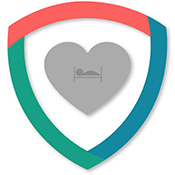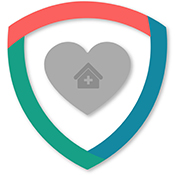If you are reading this article, then you are being blessed by a church that cares about you and your situation. The team at genusConnect™ recognizes that the spiritual community (churches) wants to support their members in any possible way that they can when they are enduring hardships. You are NOT alone! As a result, Genus™ offers a free church platform in our app that will allow members of the care community to choose a church to come along side them during this difficult time in life. If your church doesn’t offer this platform yet, you may want to encourage them to contact genusConnect™ to be added to the growing list!
Providing care, and even receiving care, can be one of life’s greatest challenges. Over 40 million people in the US are involved in providing care of some sort for a loved one. Nearly ½ of those providing care have reported depression and anxiety over the situation. Your church cares and wants to help.
Different churches have different ways of helping, and the church connected with your Genus™ app has decided upon the best ways they can help. Some of the ways churches are offering help through Genus™:
- Request a prayer
- Request a pastoral visit
- Request transportation
- Request a meal
- Connect with the church and other avenues of support (support groups)
- Inspirational, faith-based stories
We have a saying at genusConnect ™: Once a caregiver, always a caregiver. Someday, when your caregiving duties are over, you may even decide to get involved in helping others who are in a caregiving situation at your own church someday. Talk to the leadership at your church and see how you can get involved. Or, maybe you have friends you know who want to get involved in helping others who are enduring the stress of providing care. You can encourage them to get involved as well. care
You are NOT alone. Genus™ cares. God cares. Your church cares. God Bless you in this journey!
 You have found the home-care provider or facility you want to help with the care of your aging loved one, but how does one pay for this? If your loved one doesn’t have long-term health insurance, things can get expensive very quickly.
You have found the home-care provider or facility you want to help with the care of your aging loved one, but how does one pay for this? If your loved one doesn’t have long-term health insurance, things can get expensive very quickly.  It can be so overwhelming deciding what kind of outside help to hire for your aging loved one. Who should you hire? How do you find them? Are they qualified? Can they be trusted to care for your parent? What questions should you ask? What is the cost? How do I find the best care possible for my parent?
It can be so overwhelming deciding what kind of outside help to hire for your aging loved one. Who should you hire? How do you find them? Are they qualified? Can they be trusted to care for your parent? What questions should you ask? What is the cost? How do I find the best care possible for my parent?
 One of the most frustrating things to deal with when caring for an aging parent is the many health complications that arise as one ages. Medical safety is of key concern. Many family member also acting as caregivers have not had a great deal of experience dealing with doctors and various medical safety issues. There are many questions that arise, making the whole caring experience a bit overwhelming without the proper information.
One of the most frustrating things to deal with when caring for an aging parent is the many health complications that arise as one ages. Medical safety is of key concern. Many family member also acting as caregivers have not had a great deal of experience dealing with doctors and various medical safety issues. There are many questions that arise, making the whole caring experience a bit overwhelming without the proper information.